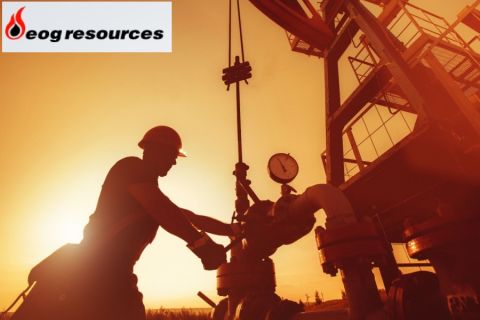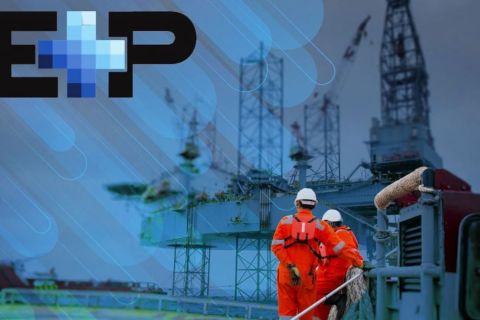I'm Jordan Blum, editorial director at Hart Energy, here at CERAWeek by S&P Global, and I'm joined by Freeman Shaheen, president for Chevron Global Gas. Thank you so much for joining us.
Jordan Blum: So Chevron now is the top producer in the Permian. You're big in the D-J basin. How is that process going, connecting all of that U.S. Gas to global markets?
Freeman Shaheen: Well, last year we signed some offtake agreements with a couple of the LNG producers, Cheniere and Venture Global [LNG], and we're really proud of that. As our production continues to grow, we look at the balance of what we want to get access to international markets. Cause when you liquefy you, you're chilling gas and it … condenses into liquid and you can put it on a ship and you can transport it almost anywhere in the world.
JB: How has that process, obviously it's been going on for a decent time now, but just thinking globally with all things gas instead of a domestic product?
FS: Well, gas is we believe gas leads us to a lower carbon future. It's really important. I mean, there's a lot of discussion around energy transition. We have a lot of good things working there. We're also working on making gas cleaner. For example, in the Permian, we don't flare anymore, no routine flaring. We're monitoring for methane leakage. We're using alternatives for our own production and drilling programs. So it's a really exciting time as we clean up the industry on one side and as we distribute gas around the globe, which is needing other markets to displace coal. So you're seeing, if you look at the whole value chain, it gets better that way.
JB: I mentioned the US shale production Chevron's also growing in the Gulf of Mexico. I know that's a little more oil centric, but how is that gas playing into the, the picture too?
FS: Well, the U.S. has one of the most integrated networks of gas. So it, it all comes together and there's different market centers and hubs and how that gets distributed and optimized across the network.
JB: With everything going on, too, in the Ukraine and the geopolitics and conflict, everything involved, how has the LNG map kind of globally fundamentally shifted in, in recent months in the last year?
FS: Yeah. Well, it's really sad what's happening there and, and in the loss of life and the devastation that's going on is a tragedy. That has caused really more of a pipe gas problem. You had a significant volume of gas used for geopolitical reasons come out —a higher demand then for, for LNG to come in. But before the war started, LNG was already at a high price because people were transitioning and displacing coal and other products that they were using to burn to, to make energy. And so we were already seeing a growth in it, and we'd had a lack of capital investment. I mean, COVID was a devastating time for the world. Companies were in survival mode cause there wasn't demand, and so capital didn't go in. And it takes time to get these plants up and going and built, and it takes partnership to make that happen. And that partnership, is the capital goes into the market. People contract for long-term offtake for that security of supply and win-win pricing.
JB: You mentioned the, the relatively recent projects contracts with Cheniere, Venture Global. One thing that's been, you know, debated by companies, I think is, is whether to focus more on the contract side or invest directly in LNG facilities. Is that something Chevron's putting more thought into in a North American standpoint?
FS: Well, we, we look at each of the markets and where is the best spot for us to do. So, for example, in Australia, we've done Gorgon and Wheatstone, right? Very complex, very difficult, very remote areas, and we do complex well. So, it makes a lot of sense there. Here in, in the U.S. in this domestic market, there's a lot of capable andand quality constructors that can do that work. And so that's why you've seen as partner, but we always analyze that to see if we can add value where we'll participate.
JB: You mentioned Australia. You are pretty well positioned, let's say in the Eastern Mediterranean, Africa how is that kind of just that global puzzle connecting the dots for Chevron? And where, where do you feel you are best position positioned? Where do you want to grow?
FS: Well, one of the things I'm really proud of during the covid epidemic and challenge, we strategically acquired Noble [Energy], which brought us the East-Med assets, brought us Equitorial Guinea, where we have some offtake today. And they're very prolific. It's an exciting opportunity for us to continue to develop and look at how we get that gas to market, whether liquefaction and floating LNG, more pipelines into different markets and that combination, that's being looked at today. So that's an exciting area. There's Angola LNG is running very well these days. It's JV [joint venture] marketed. We have partners there, and so that's working really well as well.
JB: Chevron very recently announced that it's working on a modification project for its lower carbon LNG fleet. Can you talk just about what that entails and why that's an important project?
FS: It's all part of the story that we were talking about earlier about lowering our carbon footprint on our traditional fuel. So when you think of the whole value chain, starting from drilling and using alternatives there to making sure we're monitoring methane leakage, keeping it in the pipe, that we're not routinely flaring, then when you liquefy even the partners that we've worked with, we have lower carbon efforts that we're working together to make sure that we're being competitive there.
Once you put it on a ship, there's opportunities there. So remember, you've chilled this down to minus 264. So you have what they call boil off. If you can limit the amount of boil off and conserve that, you can be more energy efficient as you go. So that announcement's really about leveraging technologies on our ships and making sure we have best in class over time and leverage that technology to lower our carbon footprint.
JB: One of the phrases you hear associated with natural gas for years is, is the term bridge fuel. Are, are these the type of projects that are necessary to make gas more than a bridge fuel?
FS: Well, I'm not sure how the energy mix is going to go. I mean today it feels like an ‘and world’, not an ‘or world.’ And as long as there's a lot of coal and oil and other things being burned for energy, there's a great opportunity for gas and LNG to participate. And so how that evolves over time, you know, time will tell and we'll see how that goes. But for the investment to happen, it takes that partnership and that partnership being the capital coming in and the long-term offtake associated with it.
JB: Thank you so much for taking the time. We really appreciate it.
Learn more about Chevron Corp. online at hartenergy.com.
Recommended Reading
EOG: Utica Oil Can ‘Compete with the Best Plays in America’
2024-05-06 - Oil per lateral foot in the Utica is as good as top Permian wells, EOG Resources told analysts May 3 as the company is taking the play to three-mile laterals and longer.
E&P Highlights: May 6, 2024
2024-05-06 - Here’s a roundup of the latest E&P headlines, including technology milestones and new contract awards.
US Oil, Gas Rig Count Falls to Lowest Since January 2022
2024-05-03 - The oil and gas rig count, an early indicator of future output, fell by eight to 605 in the week to May 3, in the biggest weekly decline since September 2023.
Pemex Reports Lower 2Q Production, Net Income
2024-05-03 - Mexico’s Pemex reported both lower oil and gas production and a 91% drop in net income in first-quarter 2024, but the company also reduced its total debt to $101.5 billion, executives said during an earnings webcast with analysts.
Chouest Acquires ROV Company ROVOP to Expand Subsea Capabilities
2024-05-02 - With the acquisition of ROVOP, Chouest will have a fleet of more than 100 ROVs.




